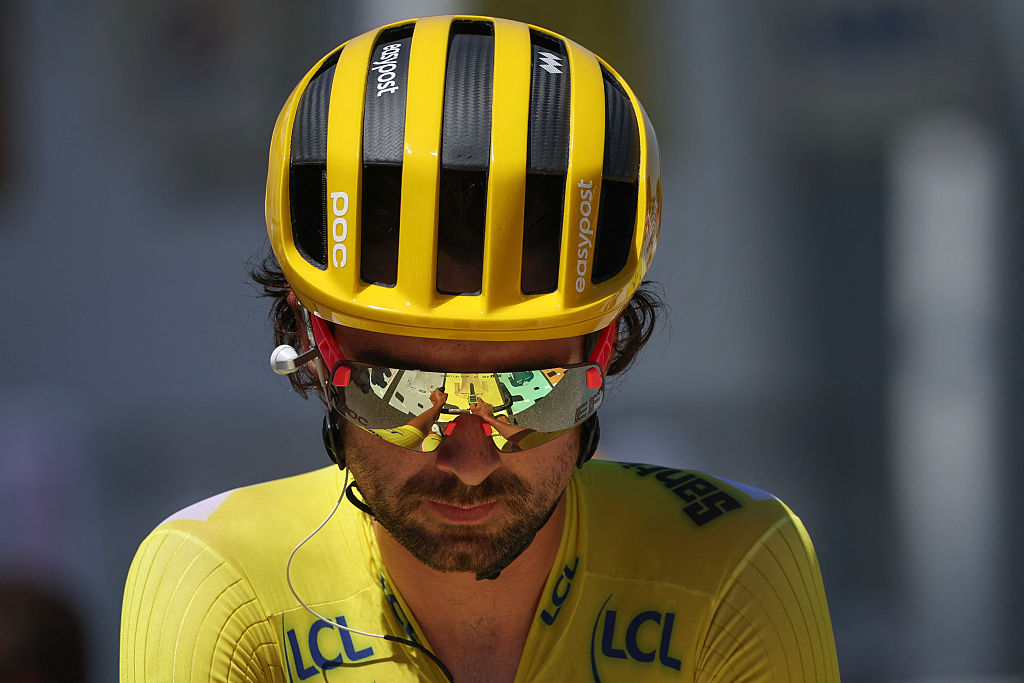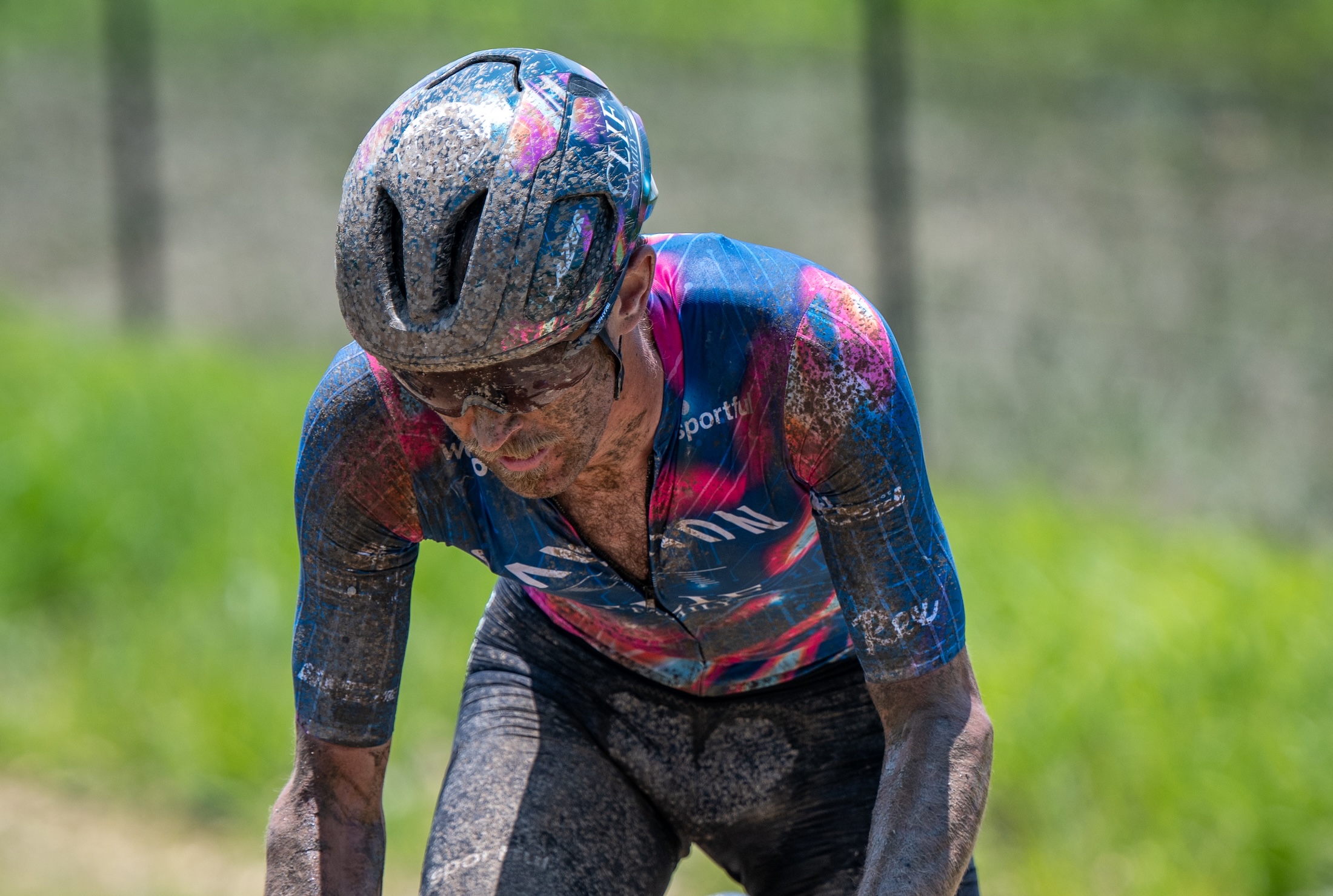'That was Ben' - EF Education-EasyPost say decision to slow peloton after Tadej Pogačar crashed taken by Tour de France leader Ben Healy
Team manager Jonathan Vaughters praises Irishman for fair play decision

The latest race content, interviews, features, reviews and expert buying guides, direct to your inbox!
You are now subscribed
Your newsletter sign-up was successful
EF Education-EasyPost Manager Jonathan Vaughters said that Tour de France leader Ben Healy was personally responsible for deciding to ask other riders in the peloton to slow when top favourite and defending champion Tadej Pogačar (UAE Team Emirates) fell late on stage 11.
Pogačar fell heavily with around four kilometres to go, but rather than the main group of GC favourites maintaining their speed, the decision was taken to wait for the Slovenian to catch up.
Speaking later in the race leader's press conference, Healy said that the issue was one of respect between riders.
And according to Vaughters, rather than the team having any input in that decision over the radio, it was Healy's direct actions that helped slow the peloton, with his status as Tour de France leader also crucial in ensuring the deceleration actually happened.
In times gone by, although the role of 'patron' in the bunch is becoming increasingly hazy, Tour de France leaders traditionally have commanded a kind of unspoken respect. Former winners like Chris Froome, when his teammates fell in the Tour in 2015, have managed to get the peloton to slow, and when Froome himself fell when leading the 2014 Dauphine, the peloton also decelerated.
On this occasion in the Tour with Pogačar down, "that was Ben," Vaughters told Cyclingnews after stage 11.
"I mean, that kind of shows what kind of guy he is. He just rode up and basically told everyone to knock it off, because it [continuing to drive with Pogačar down] was bullshit.
The latest race content, interviews, features, reviews and expert buying guides, direct to your inbox!
"And I agree with him. It was kind of bullshit. So I'm glad he made the right thing."
As Vaughters sees it, "Ben is not the kind of guy who wants to take advantage of other people's misfortunes. So I'm glad he was able to convince everybody to that.
"When I saw him doing that I was like - ooh, I don't know if these guys are going to listen to him. But, they did. There's still some semblance of respect for the yellow jersey in the Tour."
According to Soudal-QuickStep's Ilan Van Wilder, his team leader Remco Evenepoel was also quick to tell others to slow down, because at that point in the race, it was unclear what was going on.
"I honestly didn't know that he'd crashed," Ilan Van Wilder told Sporza. "Until Remco suddenly shouted, 'stop, stop, stop'.
"Everyone immediately stopped riding. I was absolutely stunned; I didn't know he'd crashed. I'm someone who values fair play. If it were the other way around one day, I hope they'd do the same."
Soudal Sports Director Tom Steels agreed with both Van Wilder and Vaughters that the decision was the right one.
"It was not the time to start racing. That wouldn't be good sportsmanship. The battle must be fought fair and square."
After tackling the 'walls' of the short but very steep climbs around Toulouse on stage 11, Healy remained in the lead going into the Pyrenees, and as Vaughters told Cyclingnews, "We'll see what he can do tomorrow [Thursday]".
"You know, today was always going to be a little difficult for him, because people say he's a puncher, but he's not a puncher."
"The reason why he's so good at Amstel Gold and Liège-Bastogne-Liége is because they're such long races and he's actually like a diesel engine. Tomorrow is such a grindy [stage] all day long, that's good for him. Where it takes him, who knows? But I think he'll be a little tougher to get rid of than some people think."
The Tour de France is the biggest race in cycling, and a Cyclingnews subscription offers you unlimited access to our unrivalled coverage. Get all the breaking news and analysis from our team on the ground in France, plus the latest pro tech, live race reports, and a daily subscriber-only newsletter with exclusive insight into the action. Find out more.
Alasdair Fotheringham has been reporting on cycling since 1991. He has covered every Tour de France since 1992 bar one, as well as numerous other bike races of all shapes and sizes, ranging from the Olympic Games in 2008 to the now sadly defunct Subida a Urkiola hill climb in Spain. As well as working for Cyclingnews, he has also written for The Independent, The Guardian, ProCycling, The Express and Reuters.
You must confirm your public display name before commenting
Please logout and then login again, you will then be prompted to enter your display name.

